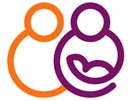Ayunar en el parto, reliquia o requisito. Fasting in labor: relic or requirement.
ARTICULO ORIGINAL: La investigación no respalda la restricción de comida y bebida en el parto para prevenir aspiración gástrica. La restricción de consumo oral durante el parto tiene inesperados resultados negativos. Los estudios sobre anestéticos se han enfocado en el vaciado gástrico, medido por varias técnicas, pre-asumiendo que el retraso del vaciado gástrico predispone a las mujeres a la aspiración. Analgesia narcótica retrasa el vaciado gástrico, pero los resultados son conflictivos en el efecto del parto normal y de la anestesia epidural sobre el vaciado gástrico. Los efectos de ayunar en el parto sobre el feto y el neonato y en el curso del parto no han sido estudiados adecuadamente. Sólamente un estudio evaluó el probable riesgo de mortalidad materna por aspiración que es aproximadamente de 7 en 10 millones de partos.
Enlace al texto completo a la pagina profesional de la autora
Martha Sleutel RN, MSN, Susan Sherrod Golden RN, MSN (1999) Fasting in Labor: Relic or Requirement Journal of Obstetric, Gynecologic, & Neonatal Nursing 28 (5), 507–512.
Abstract
Objective:
To evaluate the scientific literature on restrictions of eating and drinking during labor.
Data Sources:
Computerized searches in MEDLINE and CINAHL, as well as historical articles, texts, and references cited in published works. Key words used in the searches included anesthesia in labor, childbirth, eating and drinking, epidural, fasting, fasting in labor, fasting and pregnancy, gastric aspiration, gastric emptying, intrapartum, intravenous fluids, IVs in labor, ketonuria, ketonuria in labor, parturition, pregnancy, and stomach contents in labor.
Study Selection:
Articles from indexed journals, excluding single-person case studies.
Data Extraction:
Data were extracted and organized under the following headings: historical review, effects of fasting on labor, research on maternal mortality/morbidity from aspiration, research on gastric emptying in labor, intravenous hydration in labor, and implications for nursing research.
Data Synthesis: Research does not support restricting food and fluids in labor to prevent gastric aspiration. Restricting oral intake during labor has unexpected negative outcomes.
Conclusions:
Little is known about the differences in labor progress, birth outcomes, and neonatal status between mothers who consume food and/or fluids during labor and women who fast during labor. Research also is needed on the effects of epidural opioids on gastric emptying, nutritional requirements during labor, and the physiologic implications of fasting during labor. Fasting during labor is a tradition that continues with no evidence of improved outcomes for mother or newborn. Many facilities (especially birth centers) do not restrict eating and drinking. Across the United States, most hospitals restrict intake, usually to ice chips and sips of clear liquids. Anesthesia studies have focused on gastric emptying, measured by various techniques, presuming that delayed gastric emptying predisposes women to aspiration. Narcotic analgesia delays gastric emptying, but results are conflicting on the effect of normal labor and of epidural anesthesia on gastric emptying. The effect of fasting in labor on the fetus and newborn and on the course of labor has not been studied adequately. Only one study evaluated the probable risk of maternal aspiration mortality, which is approximately 7 in 10 million births.







 Anterior: Factores de riesgo para desgarros de esfinter anal durante el parto. Risk Factors for Anal Sphincter Tear During Vaginal Delivery
Anterior: Factores de riesgo para desgarros de esfinter anal durante el parto. Risk Factors for Anal Sphincter Tear During Vaginal Delivery

 Web MatronasUbeda by
Web MatronasUbeda by 